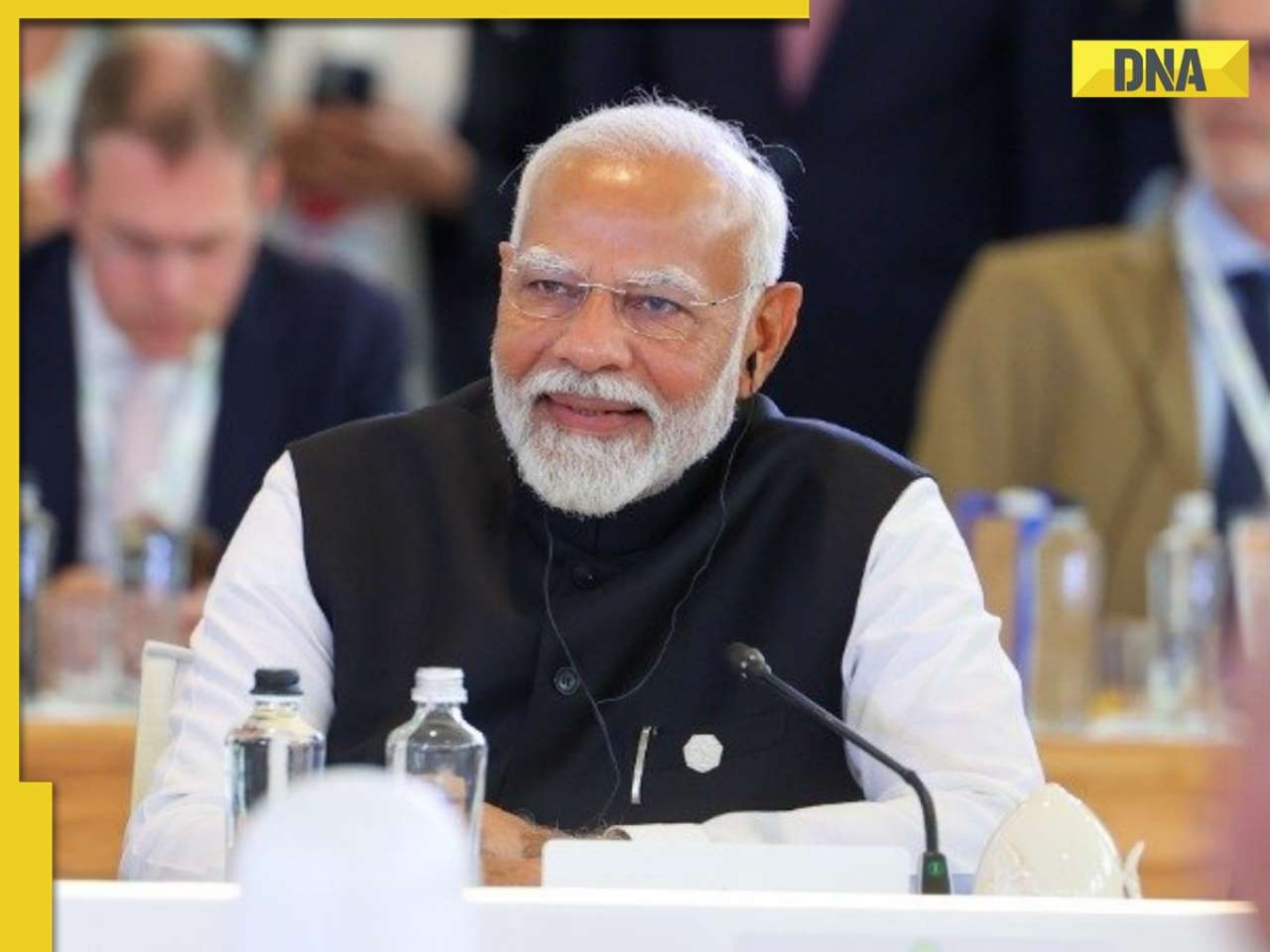Chinese President Xi Jinping has been reaching out to Western investors and has repeatedly warned against attempts of ‘de-coupling’ by the US.
Apple CEO Tim Cook during his recent visit to Indonesia said that Apple would expand its presence in Indonesia. Cook, who met with Indonesian President Joko Widodo, said: “I think the investment ability in Indonesia is endless. I think that there are a lot of great places to invest. And we’re investing. We believe in the country.”
In recent years -- in the aftermath of trade wars between both countries and then the covid 19 pandemic -- Apple, like several other US companies, has sought to relocate from China. South-East Asian nations – Vietnam, and Malaysia – have been top preferences for these companies, with India also beginning to emerge as a potential destination.
The Biden Administration introduced the Chips and Science Act, in 2022, to give a boost to semiconductor manufacturing in the US and in October 2022 it introduced laws restricting the export of certain semiconductors to China (Biden’s economic policies vis-à-vis China, especially in the area of tech have been quite tough). During a recent trilateral summit of leaders from the US, Japan and the Philippines, the US along with Japan said that it would invest in the semiconductor industry in the Philippines. The joint statement issued after the meeting also referred to a training program for Philippines students, with the aim of expanding the semiconductor workforce in the ASEAN nation.
“We intend to pursue a new semiconductor workforce development initiative, through which students from the Philippines will receive world-class training at leading American and Japanese universities, to help secure our nations’ semiconductor supply chains,” the statement read.
China trying to attract Western investors
Significantly, the Apple CEO had met with Chinese President Xi Jinping in November 2023 – Cook was one of the invitees for a dinner hosted by Xi on the sidelines of the APEC Forum in San Fransisco. He also visited China in March 2024.
Xi on his part has been reaching out to Western investors and has repeatedly warned against attempts of ‘de-coupling’ by the US. During his meeting, last month, with US CEO’s -- who had come to attend the China Development Forum – the Chinese President highlighted the reforms undertaken by China to attract foreign investors. He also said that there was great potential for cooperation between US and China in several areas including climate change and artificial intelligence.
Reforms being undertaken by China were also highlighted at the Boao Forum (China’s version of the World Economic Forum). While addressing the Forum, Zhao Leiji the Chairman of the National People's Congress Standing Committee of China said: “We sincerely welcome all countries to board the express train of China’s development and join hands to realize world modernization featuring peaceful development, mutually beneficial cooperation and common prosperity,”
Why China needs to draw more FDI
Recent growth figures may have come as a reprieve for China, China’s GDP was 5.3% year on year in the first quarter of 2024 well above the estimated 4.9%. Drawing more FDI is imperative for China, and Beijing’s overtures and outreach vis-à-vis US CEOs need to be viewed in this context.
It would be pertinent that foreign investment in China has witnessed a slump in the beginning of 2024 and a survey conducted by the American Chamber of Commerce in China (AmCham) – released in February 2024 highlighted the fact that while the profitability of Western countries was up in 2023, there was uncertainty with regard to expansion/fresh investments.
Can US-China relations be de-hyphenated from the bilateral relations?
US CEOs realize that economics cannot be de-hyphenated from the broader geopolitical relationship. According to the AmCham survey, one of the concerns of Western firms was the current state of US-China bilateral relations. It would be pertinent to point out that while engagement between Washington and Beijing is being viewed as a welcome step, by US businesses, key differences on economic and strategic issues persist. During her Beijing visit, US Secretary of Treasury Yellen highlighted several US concerns. Apart from possible US sanctions if China continued to provide assistance to Russia in the Russia-Ukraine conflict, the US Treasury Secretary also urged Beijing to consider revision of its unfair trade practices.
A possible Trump Presidency could further escalate tensions between Beijing and Washington. Trump has already warned that he would impose tariffs on China if he were to win the 2024 election. Earlier this week, US President Joe Biden called for tripling of tariffs on steel and aluminium from China.
In conclusion, it is highly unlikely that US CEOs are likely to ‘de-couple’ from Beijing as advocated by many US commentators and policymakers. At the same time, they will tap opportunities in other markets in South-East Asian nations and India. US CEOs would be closely following how US domestic politics pans out over the next few months in the run-up to the US Presidential elections in 2024.
Disclaimer: The views expressed in the article belong solely to the author.
![submenu-img]() After his arrest in murder case, Darshan lands in more legal trouble; Kannada star will now be charged for...
After his arrest in murder case, Darshan lands in more legal trouble; Kannada star will now be charged for...![submenu-img]() DNA TV Show: Who is the mastermind of alleged NEET-UG paper leak?
DNA TV Show: Who is the mastermind of alleged NEET-UG paper leak?![submenu-img]() Meet man who gets Rs 12.50 crore salary, runs Rs 318000 crore company backed by Ratan Tata
Meet man who gets Rs 12.50 crore salary, runs Rs 318000 crore company backed by Ratan Tata![submenu-img]() Neeraj Chopra wins gold in javelin at Paavo Nurmi Games 2024 with throw of...
Neeraj Chopra wins gold in javelin at Paavo Nurmi Games 2024 with throw of...![submenu-img]() 'Modi ji won't be intimidated': Taiwan after China objects to ties with India
'Modi ji won't be intimidated': Taiwan after China objects to ties with India![submenu-img]() Meet man who cracked NEET-UG at 50 but there is a twist...
Meet man who cracked NEET-UG at 50 but there is a twist...![submenu-img]() Meet IIT-JEE topper, went to IIT Bombay with AIR 1, got job with Rs 70 lakh salary, left it to become a…
Meet IIT-JEE topper, went to IIT Bombay with AIR 1, got job with Rs 70 lakh salary, left it to become a…![submenu-img]() 'If there is 0.001% negligence on the part of anyone it...': SC issues notices to NTA, Centre over NEET-UG
'If there is 0.001% negligence on the part of anyone it...': SC issues notices to NTA, Centre over NEET-UG ![submenu-img]() Meet doctor who cracked UPSC exam, became IAS officer but resigned after seven years due to...
Meet doctor who cracked UPSC exam, became IAS officer but resigned after seven years due to...![submenu-img]() NEET-PG 2024 admit card to be released today; check steps to download
NEET-PG 2024 admit card to be released today; check steps to download ![submenu-img]() DNA Verified: Did Kangana Ranaut party with gangster Abu Salem? Actress reveals who's with her in viral photo
DNA Verified: Did Kangana Ranaut party with gangster Abu Salem? Actress reveals who's with her in viral photo![submenu-img]() DNA Verified: New Delhi Railway Station to be closed for 4 years? Know the truth here
DNA Verified: New Delhi Railway Station to be closed for 4 years? Know the truth here![submenu-img]() DNA Verified: Did RSS chief Mohan Bhagwat praise Congress during Lok Sabha Elections 2024? Know the truth here
DNA Verified: Did RSS chief Mohan Bhagwat praise Congress during Lok Sabha Elections 2024? Know the truth here![submenu-img]() DNA Verified: Is CAA an anti-Muslim law? Centre terms news report as 'misleading'
DNA Verified: Is CAA an anti-Muslim law? Centre terms news report as 'misleading'![submenu-img]() DNA Verified: Lok Sabha Elections 2024 to be held on April 19? Know truth behind viral message
DNA Verified: Lok Sabha Elections 2024 to be held on April 19? Know truth behind viral message![submenu-img]() Triptii Dimri sets the internet on fire in black bikini in beachside photos, fans say 'bhabhi bani baby'
Triptii Dimri sets the internet on fire in black bikini in beachside photos, fans say 'bhabhi bani baby'![submenu-img]() In pics: Ananya Panday dazzles in shimmery green mini dress, poses with Gwyneth Paltrow at Swarovski event in Milan
In pics: Ananya Panday dazzles in shimmery green mini dress, poses with Gwyneth Paltrow at Swarovski event in Milan![submenu-img]() In pics: Sonakshi Sinha's black-themed bachelorette with Huma Qureshi, Zaheer Iqbal's secret bachelor party
In pics: Sonakshi Sinha's black-themed bachelorette with Huma Qureshi, Zaheer Iqbal's secret bachelor party ![submenu-img]() From Jawan to Munjya, 5 films that showcased exceptional VFX and ruled box office recently
From Jawan to Munjya, 5 films that showcased exceptional VFX and ruled box office recently![submenu-img]() In pics: Raghubir Yadav, Chandan Roy celebrate success of Panchayat season 3 with TVF founder Arunabh Kumar, cast, crew
In pics: Raghubir Yadav, Chandan Roy celebrate success of Panchayat season 3 with TVF founder Arunabh Kumar, cast, crew![submenu-img]() DNA Explainer: What is Kafala system that is prevalent in gulf countries? Why is it considered extremely brutal?
DNA Explainer: What is Kafala system that is prevalent in gulf countries? Why is it considered extremely brutal? ![submenu-img]() Lok Sabha Elections 2024: What are exit polls? When and how are they conducted?
Lok Sabha Elections 2024: What are exit polls? When and how are they conducted?![submenu-img]() DNA Explainer: Why was Iranian president Ebrahim Raisi seen as possible successor to Ayatollah Khamenei?
DNA Explainer: Why was Iranian president Ebrahim Raisi seen as possible successor to Ayatollah Khamenei?![submenu-img]() DNA Explainer: Why did deceased Iranian President Ebrahim Raisi wear black turban?
DNA Explainer: Why did deceased Iranian President Ebrahim Raisi wear black turban?![submenu-img]() Iran President Ebrahim Raisi's death: Will it impact gold, oil prices and stock markets?
Iran President Ebrahim Raisi's death: Will it impact gold, oil prices and stock markets?![submenu-img]() After his arrest in murder case, Darshan lands in more legal trouble; Kannada star will now be charged for...
After his arrest in murder case, Darshan lands in more legal trouble; Kannada star will now be charged for...![submenu-img]() Darshan arrest: Pavithra Gowda, co-accused seen smiling during investigation, furious netizens say 'no regret, no guilt'
Darshan arrest: Pavithra Gowda, co-accused seen smiling during investigation, furious netizens say 'no regret, no guilt'![submenu-img]() Meet Captain GR Gopinath, inspired Akshay Kumar's Sarfira, served in Indian Army, founded India's first low-cost airline
Meet Captain GR Gopinath, inspired Akshay Kumar's Sarfira, served in Indian Army, founded India's first low-cost airline![submenu-img]() Justin Timberlake arrested for drunk driving in New York, details inside
Justin Timberlake arrested for drunk driving in New York, details inside![submenu-img]() The Iron Claw review: Brilliant cautionary tale of parental pressure; and a tribute to wrestling's most 'cursed' family
The Iron Claw review: Brilliant cautionary tale of parental pressure; and a tribute to wrestling's most 'cursed' family ![submenu-img]() Country with most number of pyramids, it's not Egypt
Country with most number of pyramids, it's not Egypt![submenu-img]() Mukesh Ambani, Nita Ambani's son Anant Ambani and Radhika Merchant's wedding festivities to start on...
Mukesh Ambani, Nita Ambani's son Anant Ambani and Radhika Merchant's wedding festivities to start on...![submenu-img]() Glaring safety innovation: Finland adopts reflective coating on reindeer antlers to curb road collisions
Glaring safety innovation: Finland adopts reflective coating on reindeer antlers to curb road collisions![submenu-img]() Viral video: Elephant calves sleep under ‘Z++ security’ as herd protectively stands guard
Viral video: Elephant calves sleep under ‘Z++ security’ as herd protectively stands guard![submenu-img]() This man owned Rs 248 crore necklace, first Indian to buy airplane, was wealthier than Mukesh Ambani, Ratan Tata...
This man owned Rs 248 crore necklace, first Indian to buy airplane, was wealthier than Mukesh Ambani, Ratan Tata...








































)


















)
)
)
)
)
)